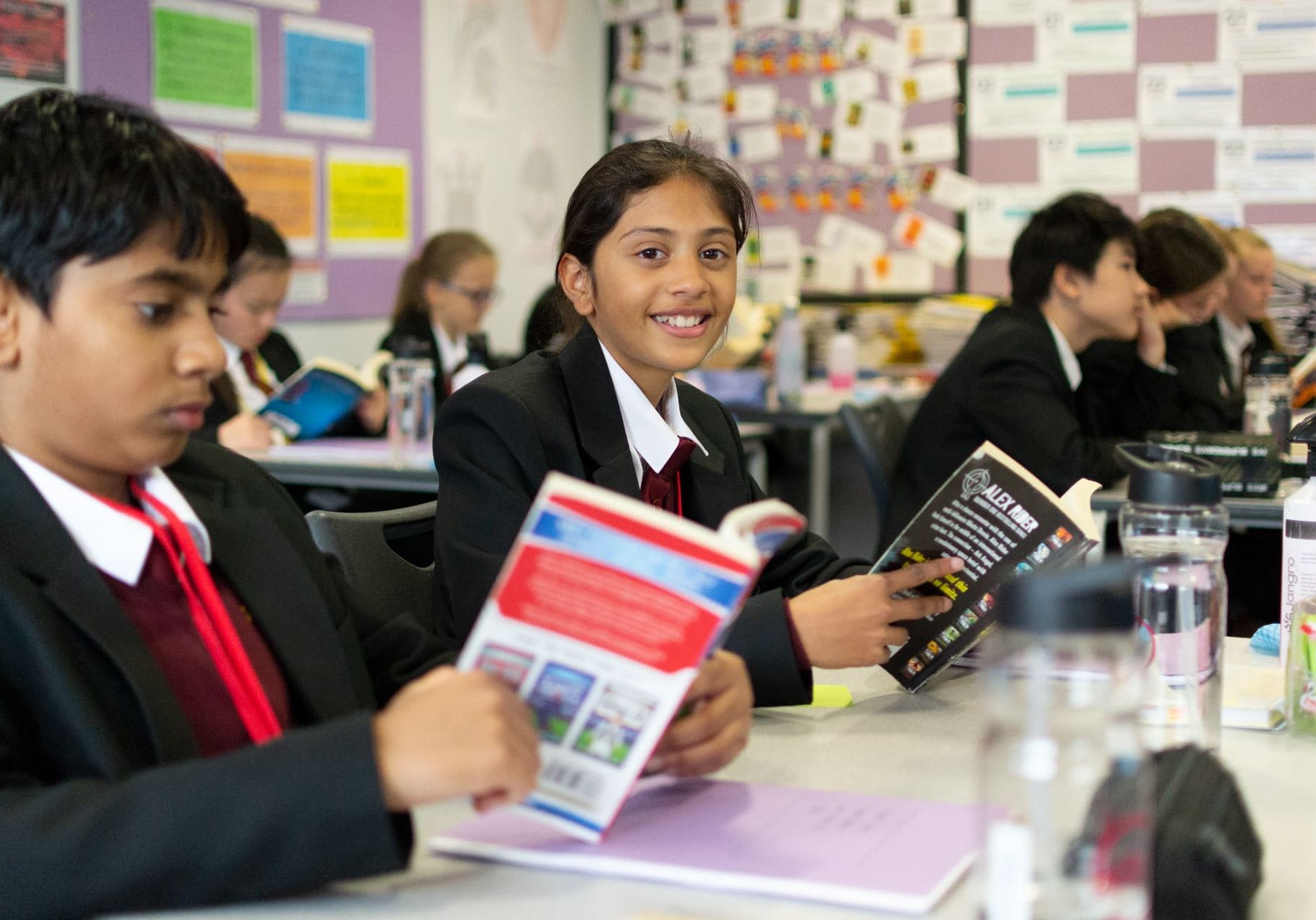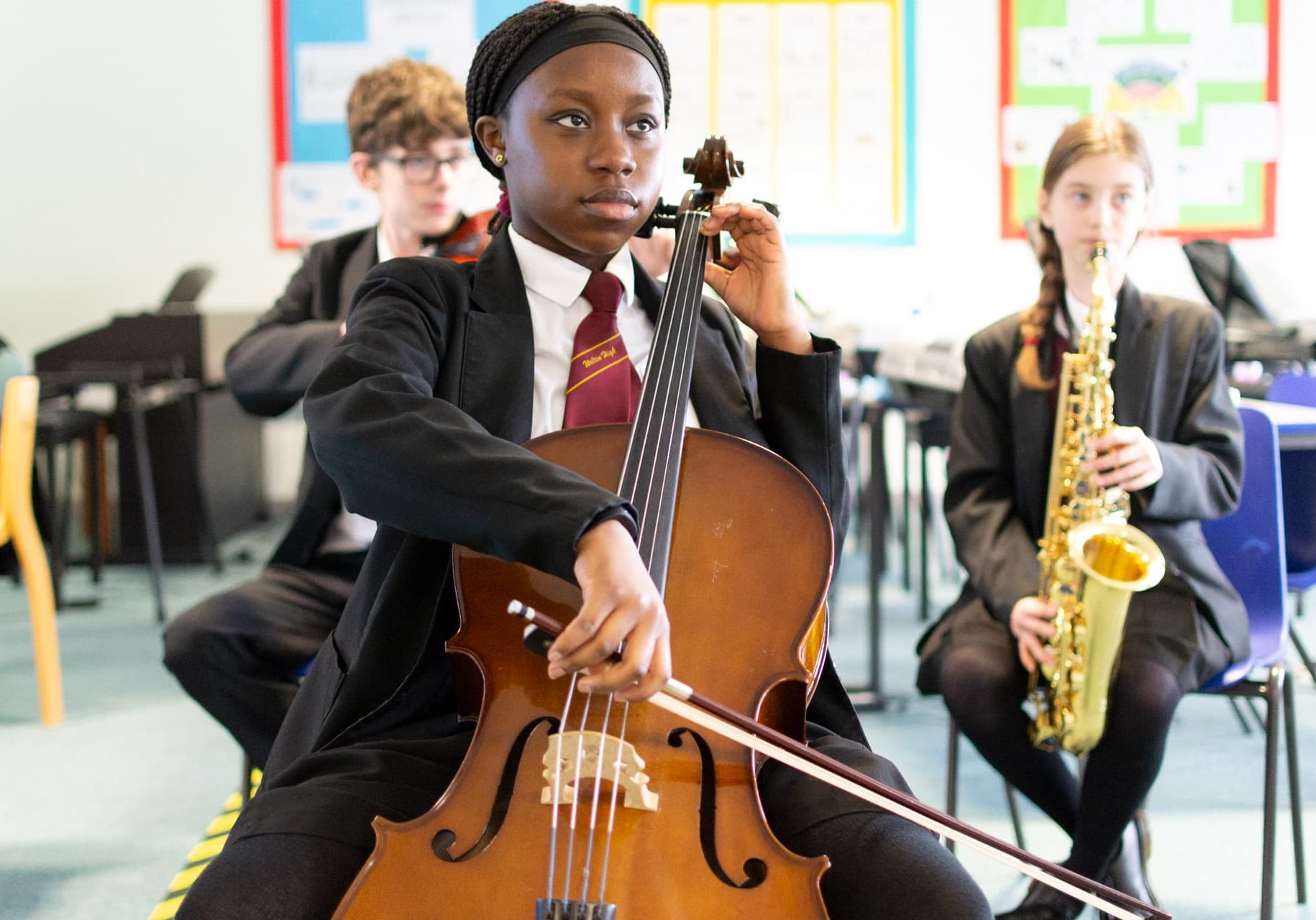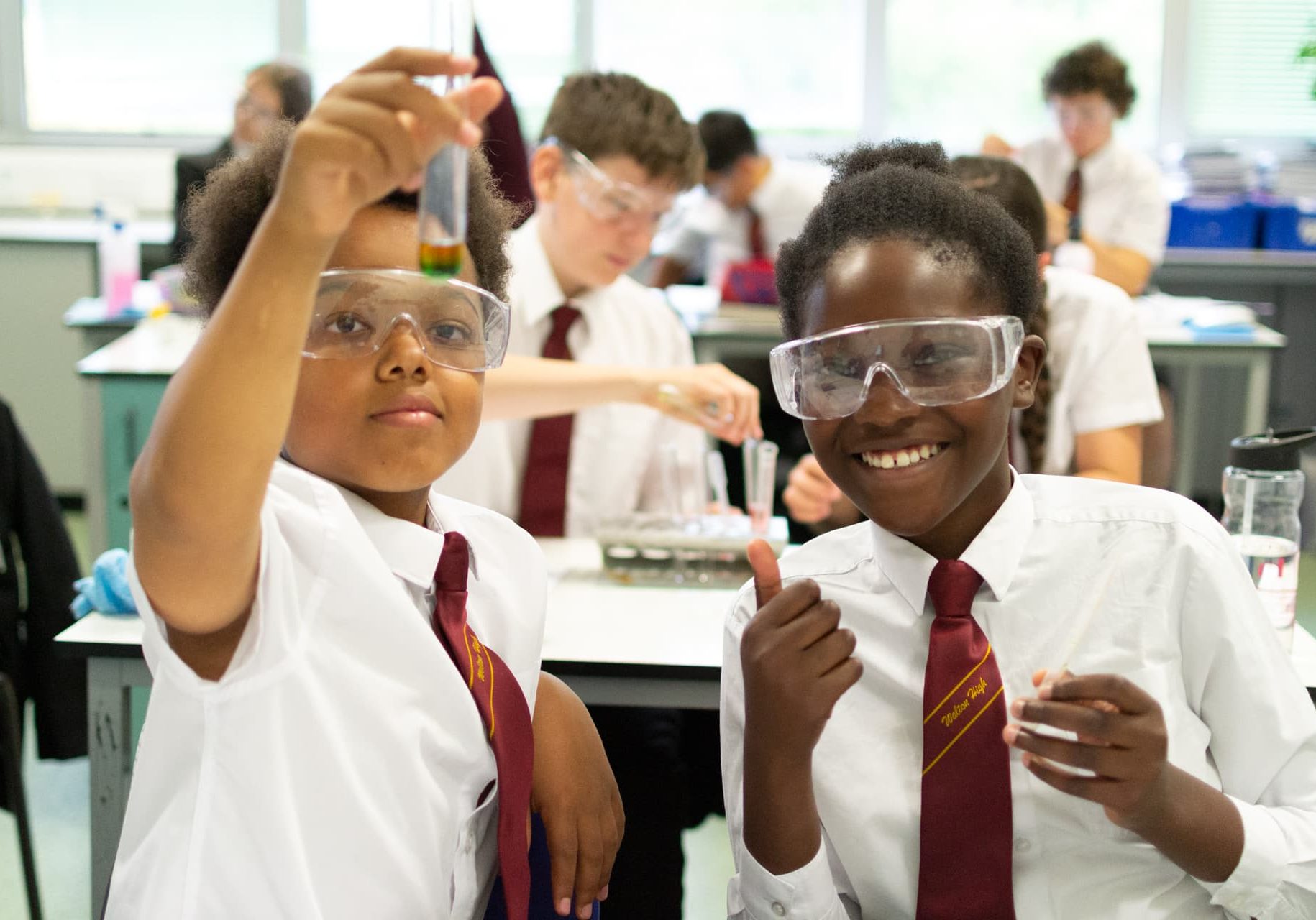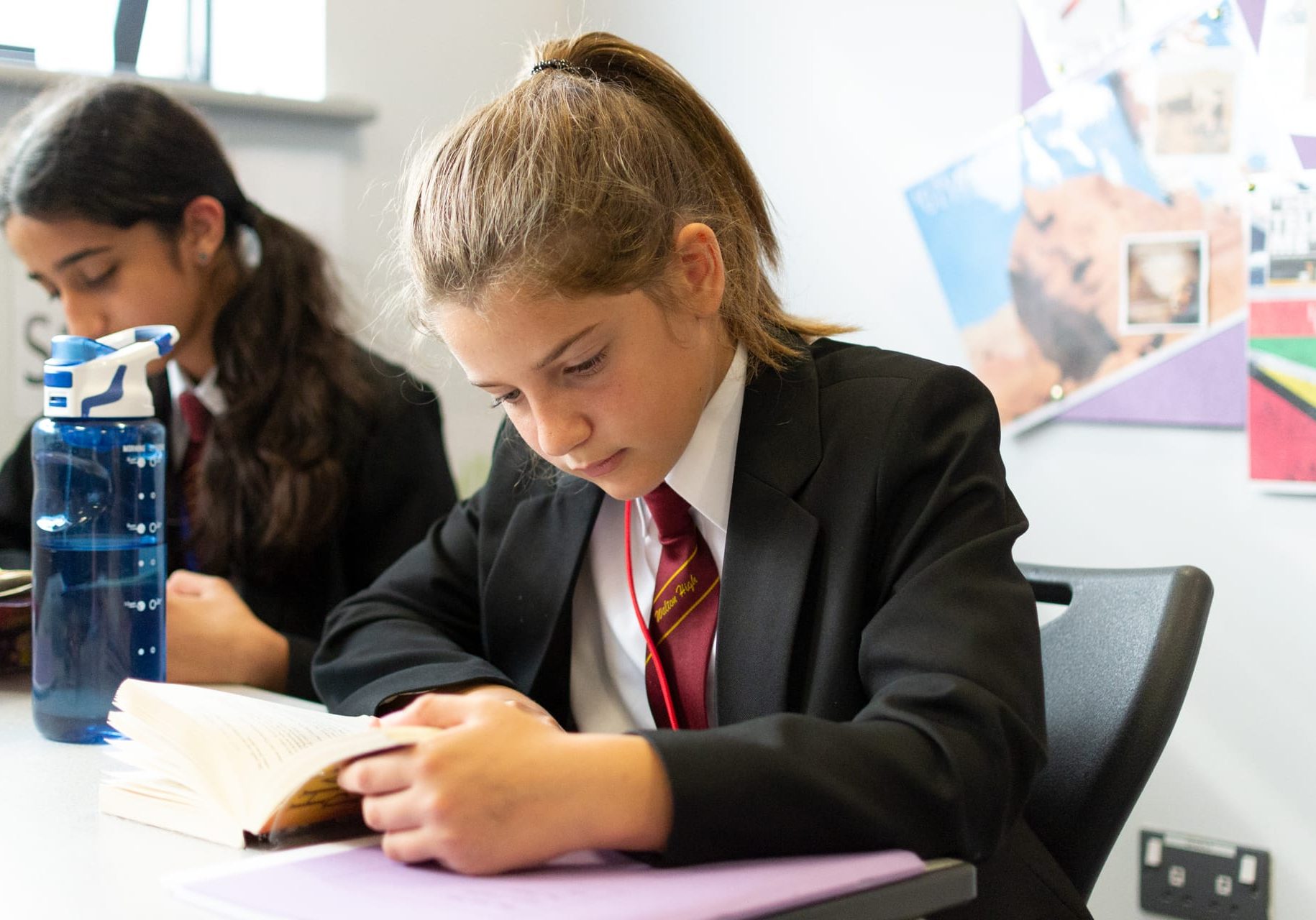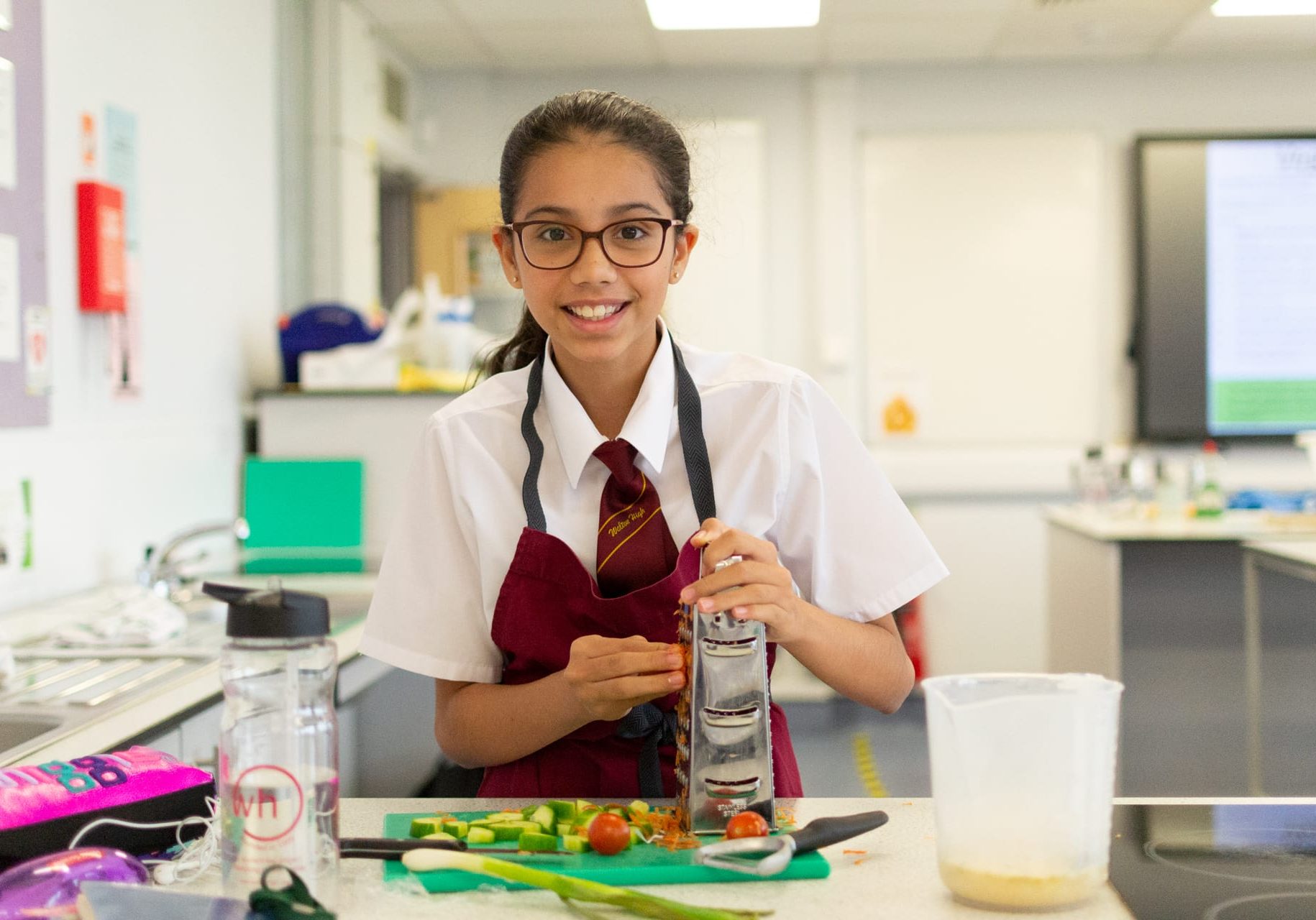Schools
International
Business & Enterprise
Linked Documents
Curriculum Statement

A clear secular moral framework promotes honesty, integrity, tolerance and respect as well as an appreciation of individual and collective responsibility. In this way we bring out the very best in our young people.
Our curriculum is well-planned and sequenced so that new learning builds on what has been taught before and moves students towards clearly defined endpoints that meet their individual needs. This will enable them to lead happy and fulfilled lives.
Curriculum Overview

In Year 7 and Year 8, subject programmes of study build upon students’ Key Stage 2 learning. The curriculum model goes beyond the expectations set out in the National Curriculum to ensure we develop the whole child. The aim is for students to acquire the knowledge and skills needed to successfully access the even broader curriculum offered from Year 9 onwards.
Within the context of high expectations for all students, following impartial advice and guidance, Walton High allows parents to decide whether their child continues to learn a foreign language at GCSE level. All students study the sciences, History and/or Geography.
The Post-16 curriculum allows for students to choose from a number of academic, general applied and technical pathways.
By the end of Key Stage 4 and Key Stage 5, the aim is for students to have acquired the knowledge, skills and attributes needed for the next stage of education, employment or training that meets their interests and aspirations.
Advanced Learning Days and Masterclasses
An important aspect of Walton High’s curriculum is the school’s Advanced Learning Days (ALDs) and Masterclasses. During these events, students are given the opportunity to explore topics in more depth, often with experts in the field from outside the school.
On ALDs, connections are made across different subjects to ensure the curriculum is experienced as an organised whole, rather than a series of separate subjects being taught independently.
3E enrichment
3E sessions are offered at the end of the day. These aim to Enable (remove barriers), Enhance (extend understanding) and Enrich (provide new experiences beyond usual classroom activities).
In order to ensure all students are able to have the widest range of opportunities, some 3E activities run across the school’s two campuses, for example, the orchestra.
Preparing students for life in modern Britain, including SMSC, PSHE
By providing students with a first-class education, the school will ensure that students are well prepared for life in modern Britain. The qualifications, entrepreneurial skills and attributes they leave Walton High with will equip them well for the modern workplace whilst the development of the whole child will help them lead happy and fulfilled lives. The teaching of Western liberal values will ensure they know how to participate in, and the importance of, democracy.
The curriculum will place as much importance on developing the whole child as it will on academic achievement. To ensure children grow into resilient adults, their mental and physical health will be seen as equally important. Providing an education that enables, enhances and enriches young people’s lives is fundamental to Walton High’s vision and ethos.
For this to be achieved, SMSC will be woven throughout the curriculum as well as being delivered in a discrete way through assemblies and the PSHE programme.
Walton High’s approach to PSHE has been much praised and widely publicised by HMI as being best practice. Sex and Relationship Education will not only take place in Science lessons and PSHE but will also be part of the Advanced Learning Day programmes. This will involve expert external trainers delivering sessions to ensure students know how to respect themselves and others, as well as how to remain safe on and off line.
Promoting British values
The values related to democracy, the rule of law, individual liberty and mutual respect will be delivered through the formal and informal curriculum – above all Walton High practices these values in everything it does.
Students will be taught about the country’s constitution and learn how to question institutions but at the same time respect them. Through participating in elections for bodies such as the School Council, young people will learn how these are conducted and how to make their voice heard to influence the outcome.
The school’s rules and expectations are clear and fair. Students learn not only about their rights but also their responsibilities. They gain an understanding of the legal system through visits to the magistrates’ court and visits from judges. Within the school, a restorative approach is taken to resolving conflict and harm done to others.
Equality
Walton High’s approach to the curriculum complies with the school’s duties under the Equality Act 2010 and the Special Educational Needs and Disability Regulations 2014 with reasonable adjustments made to ensure the curriculum is accessible for those with disabilities or special educational needs.
Remote Learning
In the event that students are required to learn from home, they will follow their usual timetable.
The school’s VLE, Firefly, will be used for setting learning activities and providing feedback; ‘live’ lessons will be delivered via MS Teams; and teachers, Learning Support and Pastoral staff will be available via Firefly, MS Teams and email.
The following approaches to remote teaching may be used:
- live teaching via MS Teams
- recorded teaching, e.g. video/audio recordings made by their teachers or others available online
- printed paper packs produced by teachers, e.g. workbooks, worksheets
- textbooks and reading books
- commercially available websites supporting the teaching of specific subjects or areas, including video clips or sequences, e.g. GCSE Pod, My Maths, Kerboodle
- long-term project work and/or internet research activities
Students who do not have a device and/or the internet access needed to support their learning will be provided with either a PC or laptop and/or a 4G router to enable them to get online.
Students will continue to receive feedback on their learning in line with the school’s policy.
Students learning remotely will receive support tailored to meet their needs.
Subject teachers will monitor students’ engagement with lessons and provide feedback and support as necessary. Students will be able to contact their subject teachers for additional support in writing or through voice/video calls using MS Teams, Firefly or email.
Personal Tutors will use their weekly Tutor Tracking and Tutor sessions to monitor students’ engagement with the lessons set. They will also contact students to provide advice and support as necessary. If a Tutor is concerned about a student falling behind, they will contact parents to discuss and look to work with families to remove any barriers to ensure no student misses out.
Learning Support staff will have regular contact with students on the SEND register; checking lessons and ensuring appropriate differentiation is in place; responding to requests for assistance from students and alerting subject staff to subject specific queries.
Pastoral staff will have regular contact with vulnerable students; responding to requests for support; signposting external support; monitoring our safeguard portal (MyConcern) and responding as needed.

